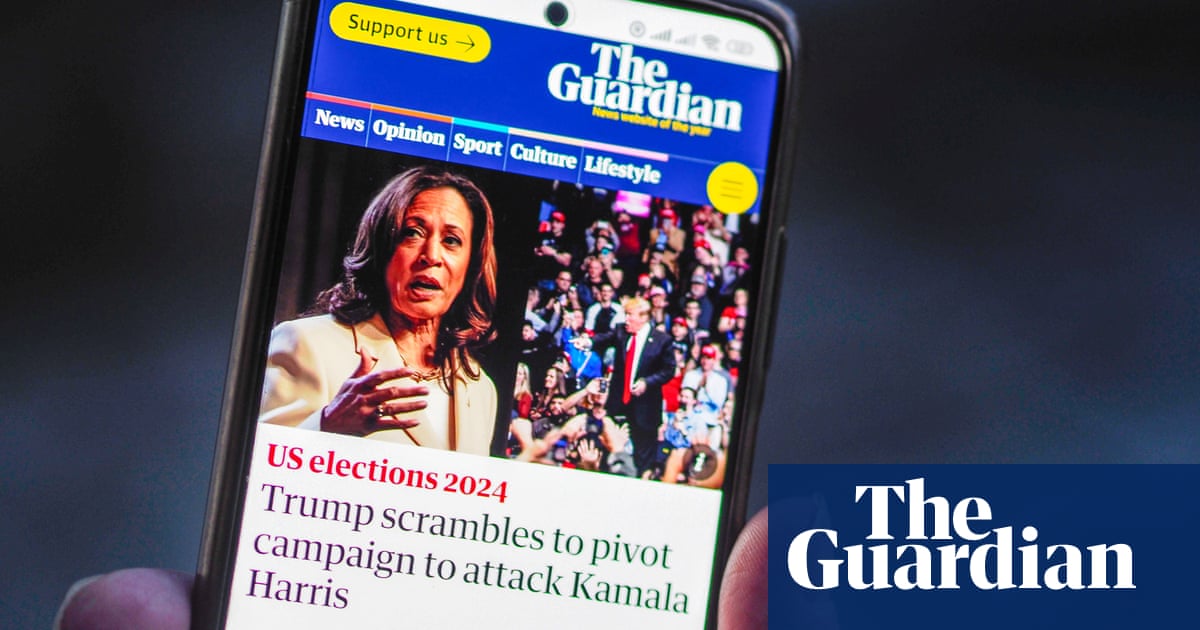World
Internet replaces TV as UK’s most popular news source for first time

Online platforms have overtaken TV channels as the most popular sources for news in the UK, according to figures described as a “generational shift” in viewing habits.
More than seven out of 10 UK adults (71%) consume online news, said the UK’s communications regulator, slightly ahead of TV, which is used by 70% of adults. Ofcom described the survey result, the first time websites and apps have moved in front of TV, as marking a “generational shift in the balance of news media”.
The presenter of the BBC’s Question Time programme, Fiona Bruce, said the growth of social media as a news source was “worrying”.
Ofcom cited social media as a key factor in the shift. More than half of UK adults (52%) use social media for news, up from 47% in 2023. The most popular social media platforms for news are Facebook, used by three out of 10 adults, followed by YouTube, Instagram and X. The BBC News website and app are used by 18% of adults.
The regulator said traditional news sources still outperformed online rivals in several important attributes such as trust, accuracy and impartiality. BBC One remains the single biggest news source, used by 43% of adults, although that has fallen sharply from 58% in 2019. The corporation’s streaming service, iPlayer, is also a big contributor to the TV segment, accounting for just under a quarter of adults. Channel 4 has dropped out of the top 10 sources for news.
Ofcom said it was launching a review of public service media content, with a focus on news. It will look at how well public service broadcasters such as the BBC and ITV have served news audiences, including online, and consider regulatory or legislative changes to support public service news.
“Television has dominated people’s news habits since the 60s, and it still commands really high trust. But we’re witnessing a generational shift to online news, which is often seen as less reliable,” said Yih-Choung Teh, Ofcom’s head of strategy and research.
Among 16- to 24-year-olds, social media is the dominant news source. Instagram is the top source overall, used by four out of 10 in that age bracket, while TikTok is used by a third of young news viewers. The generational split between online and TV news is stark, with nine out of 10 young people using online sources for news, while for a similar proportion of people over 55 the preferred medium is TV, although teens join the older generation in rating traditional sources more highly for trustworthiness. Over the past three years six out of 10 adults have rated public service broadcasters as “trusted and accurate”.
For 12- to 15-year-olds, TikTok is the biggest single news source.
Among news publishers, websites and apps, the BBC website is the most popular at 59%, followed by Sky, the Guardian and the Daily Mail at approximately 20%.
Ofcom has also released research into news consumption during the general election. It found that six out of 10 people said they had seen content that was false or misleading during the campaign. More than a quarter said they had encountered “deepfake” content, the term for a manipulated image or piece of audio representing a public figure.
The BBC’s Bruce, who presides over a cornerstone of the corporation’s current affairs coverage, expressed concern about social media’s role. Writing in the Radio Times, she said social media’s role in modern news consumption was a problem for “all of us”.
“But it’s worrying that social media is being increasingly used as a news source. It’s not just a problem for journalists, it’s a problem for all of us. And once a fake story is out there, it’s almost impossible to correct. I know, I’ve tried. Good luck trying to get anything taken down from X,” she wrote.
Bruce said one of the most common fallacies on social media was that Nigel Farage, the Reform party leader, had been on Question Time more than any other politician in recent years. She said Farage had been on one standard Question Time since 2018 and then two general election leaders’ specials.
“There’s a really common trope that Nigel Farage has been on Question Time more than any other politician in recent times. Untrue,” she wrote.










